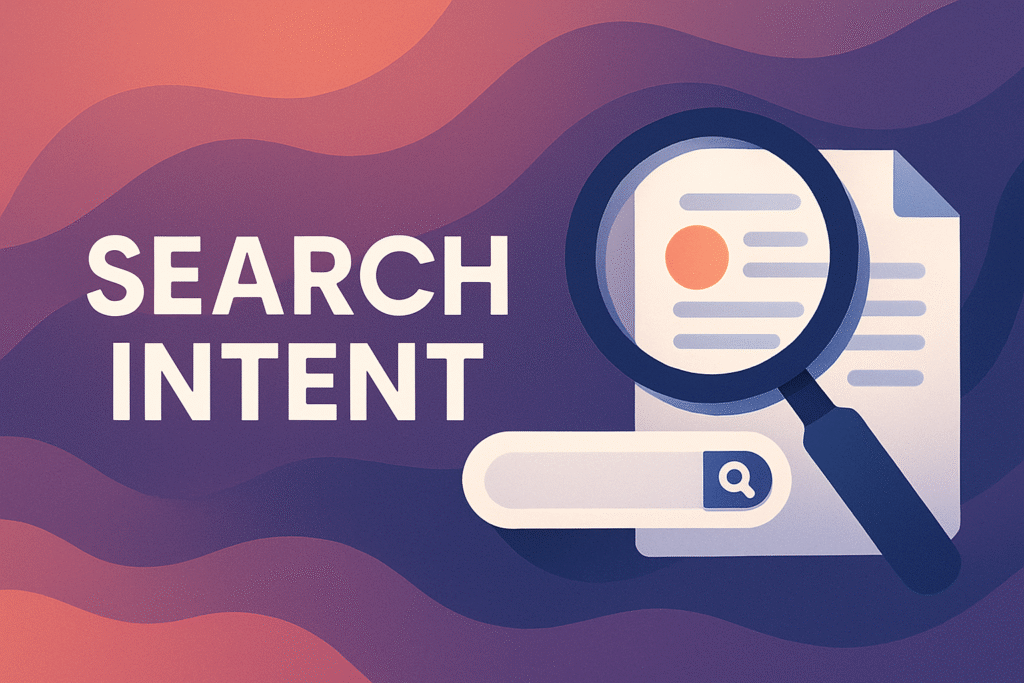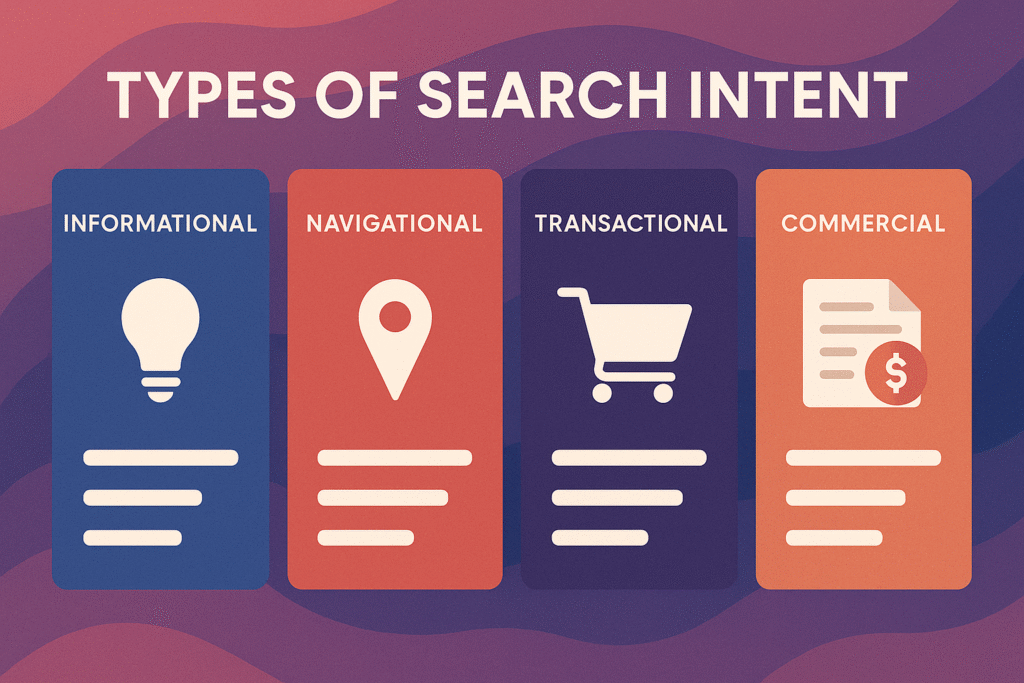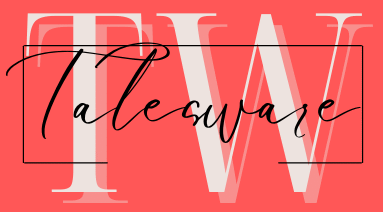
Search intent is the purpose for which a user has framed a search query. Once a user puts in a keyword or phrase in a search field, he has a certain intention in mind
He may be looking to:
- Gain more knowledge on something (informational intent)
- Locate a particular site (navigational intent)
- Purchase something (transactional intent)
- Compare things before choosing (commercial investigation)
The 4 Main Types of Search Intent

1. Informational Intent
The user is seeking to know something. These queries tend to begin with
- How to
- What is
Example searches:
- How to bake a cake
- What is SEO?
2. Navigational Intent
The user would like to access a certain website or page. They already have the site or brand name in mind.
Example :
- Facebook login
- YouTube
3. Commercial Intent (Investigational)
The user is searching to buy something. They may compare products, read reviews, or search for discounts.
Example :
- iPhone 15 vs. Samsung Galaxy S23
- Best student laptops
4. Transactional Intent
The user is willing to purchase or do something (e.g, registering, downloading).
Example :
- Purchase iPhone 15 online
- Affordable flight tickets
Why Search Intent Matters for SEO
Search intent is the hidden purpose a user has when they enter a query into a search engine. Whatever it is they wish to do–learn something, visit a particular site, or purchase a product–their intent will drive what type of content they’re anticipating viewing. Knowing and optimizing for intent is key to SEO success.
1. Higher Rankings -Google’s purpose is to organize the world’s information and make it universally accessible and useful. If your content aligns with user intent, it’s more likely to rank high. If your article doesn’t align with what the user wants, even if it’s well optimized for the proper keywords, it will probably do poorly.
2. Improve Conversion Rates – When users know what they want, they’re more apt to do something about it—read, buy, or subscribe.
With intent knowledge, you can:
- Target ready-to-buy users with transactional content
- Nurture those who are still doing their research with comparison guides or reviews
- Establish trust and authority with high-quality information content
3. Higher Engagement & Lower Bounce Rate – When your content aligns with what people are actually searching for, they spend more time there, read more, and engage with your site. That translates to higher engagement and lower bounce rates. If users find what they’re looking for in a hurry, they won’t bounce off immediately. Search engines view that as positive and will rank your page higher. Aligning search intent keeps users satisfied and boosts your SEO.
4. Builds Authority & Trust – Creates Authority & Trust – Continuously delivering content that aligns with search intent will establish your site as an authoritative source of information, creating topical authority and trust among users and search engines.
How Does Search Intent Impact The Ranking of a Webpage
Search intent is what the user actually intends to do when typing in a query. If your site fulfills that intent whether they are looking for information, wanting to purchase something, or locate a particular website then Google will rank it higher.
Even if your page is well optimized for SEO, it will not rank well if it isn’t delivering what the user is searching for. The biggest priority is displaying the most relevant results, so understanding and matching search intent is the best way to achieve better rankings.
Short version: If your content is aligning with what individuals are seeking, your page or site will rank higher. If it is not, all the tricks in SEO will not assist.

